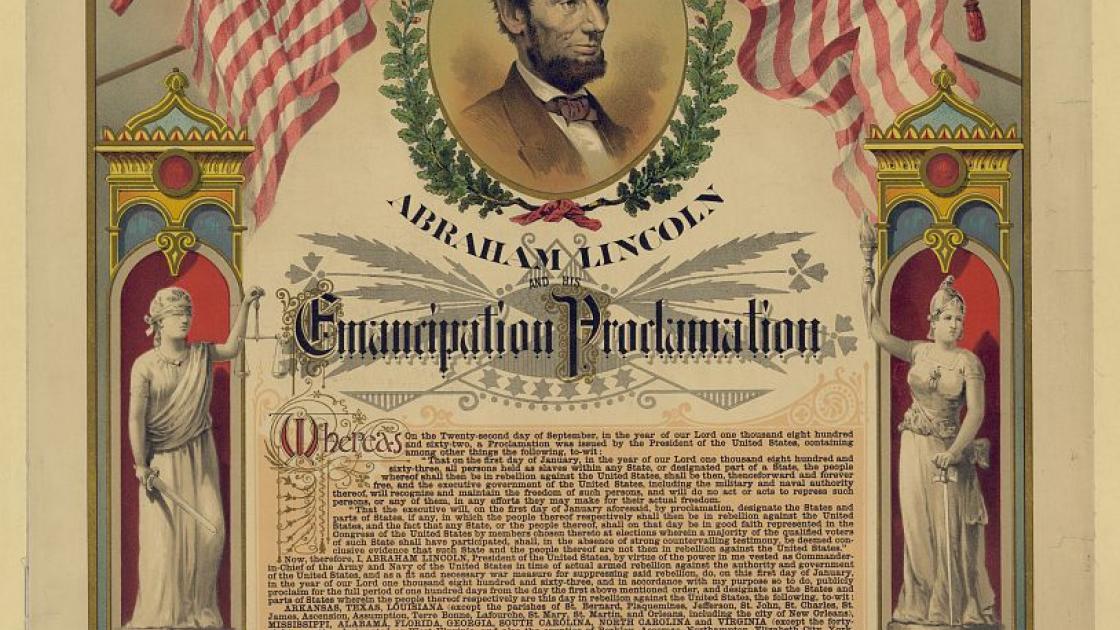About Publications Library Archives
heritagepost.org

Preserving Revolutionary & Civil War History

Preserving Revolutionary & Civil War History

Author: Rufus Blanchard
Date:1863
Annotation:
In recent years, it has sometimes been charged that Lincoln’s proclamation did not free any slaves, since it applied only to areas that were in a state of rebellion and explicitly exempted the border states, Tennessee, and portions of Louisiana and Virginia. This view is incorrect. The proclamation did officially and immediately free slaves in South Carolina’s sea islands and some other locations. Certainly, the proclamation was only a crucial first step toward complete emancipation, but in effect it transformed the Union forces into an army of liberation.
At the time he issued the preliminary proclamation, Lincoln defended it as a war measure necessary to win the war and preserve the Union. But it seems clear that Lincoln regarded this argument as necessary on tactical grounds. When he issued the final proclamation on January 1, 1863, he described it not only as “a fit and necessary war measure for suppressing said rebellion,” but an “act of justice.”
In July 1863, Hannah Johnson, the daughter of a fugitive slave, heard an erroneous report that Lincoln was going to reverse the Emancipation Proclamation. She wrote the President: “Don’t do it. When you are dead and in Heaven, in a thousand years that actions of yours will make the Angels sing your praises….”
In the following selection, a northern publisher speaks out strongly on behalf of the Emancipation Proclamation.
Document:
The Proclamation is an incalculable element of strength to he Union cause. It makes an alliance between the Rebels and Foreign States as impossible as it is for millions of Bondsmen to love Slavery better than Freedom. They loving our Government in proportion as it becomes a free land of promise and shelter from oppression, thus saving thousands of precious lives and millions of treasure from being lost in foreign wars. It perfects the purposes of the Declaration of Independence and impairs no constitutional rights, those whom it would affect having forfeited those rights by proving false to their country, to humanity and religion. No real support to the Union cause will be lost by this Proclamation, while time-serving traitors, who always covertly opposed the war, will be exposed. It will be a powerful incentive to the slave to fight for the Union instead of his rebel master, and when it becomes executed and Freedom reigns throughout the land, the colored man will leave the Northern regions,whither he has fled from slavery, and join his kindred beneath those sunny skies where nature invites him. Labor will be rewarded, justice fulfilled, and the Old Ship of State will again sail majestic o’er the unrippled waters of Liberty and Peace. Confusion and shame rest upon those who fight against a free government, and songs of thankfulness and love glorify its defenders.
Source: Gilder Lehrman Institute